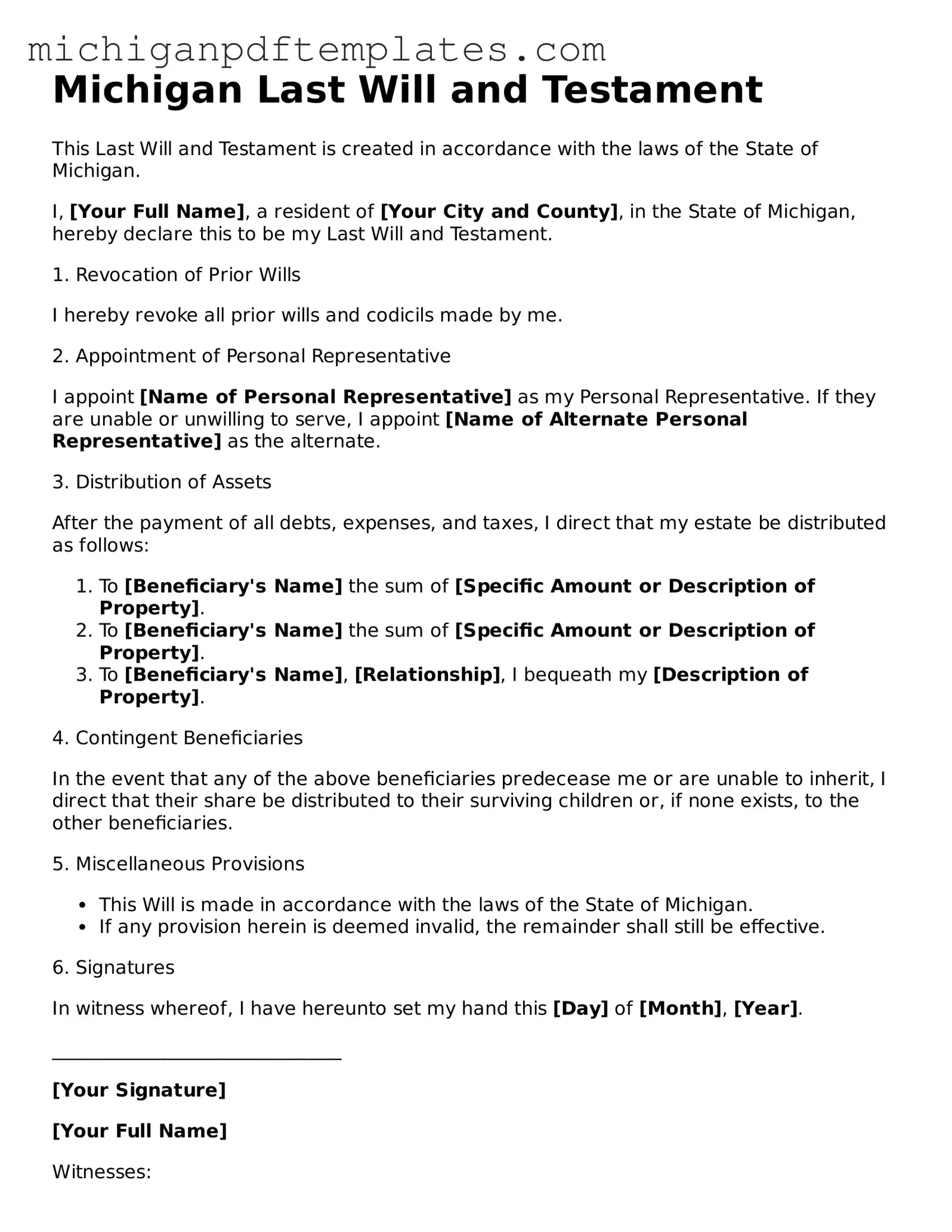Legal Michigan Last Will and Testament Template
A Michigan Last Will and Testament form is a legal document that outlines how a person's assets will be distributed after their death. This form ensures that your wishes are honored and can help prevent disputes among family members. To get started on securing your legacy, fill out the form by clicking the button below.
Get Your Form Now

Legal Michigan Last Will and Testament Template
Get Your Form Now

Get Your Form Now
or
▼ PDF Form
Finish this form quickly and move on
Fill in and complete Last Will and Testament online quickly.